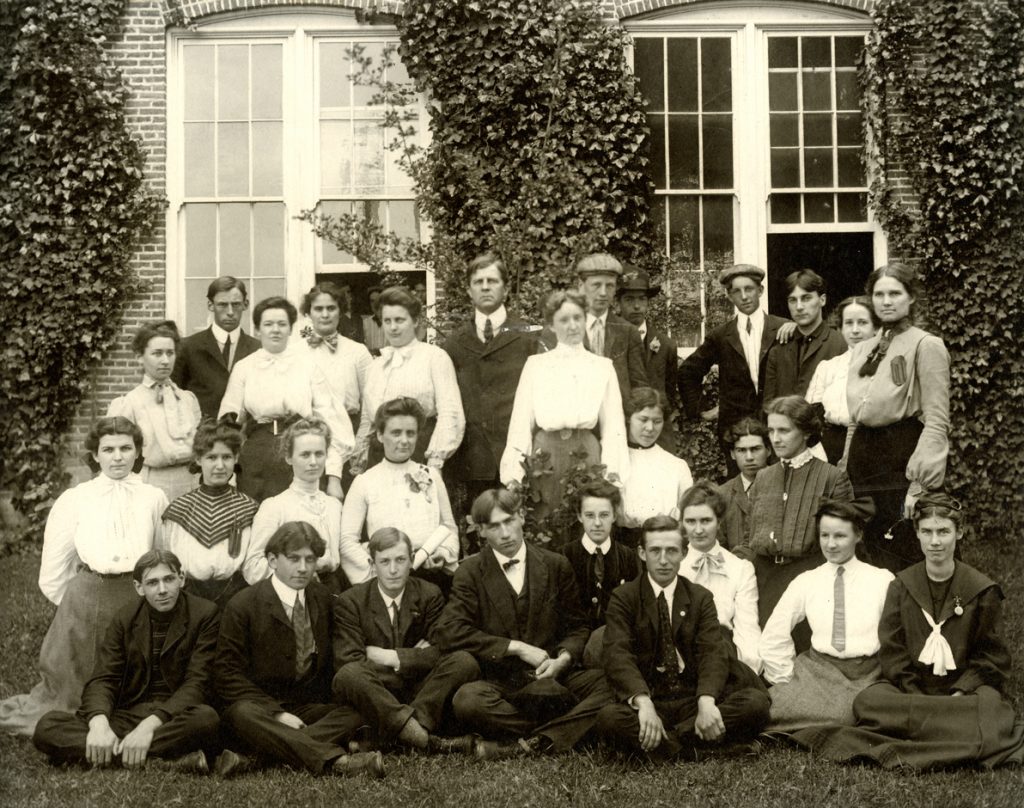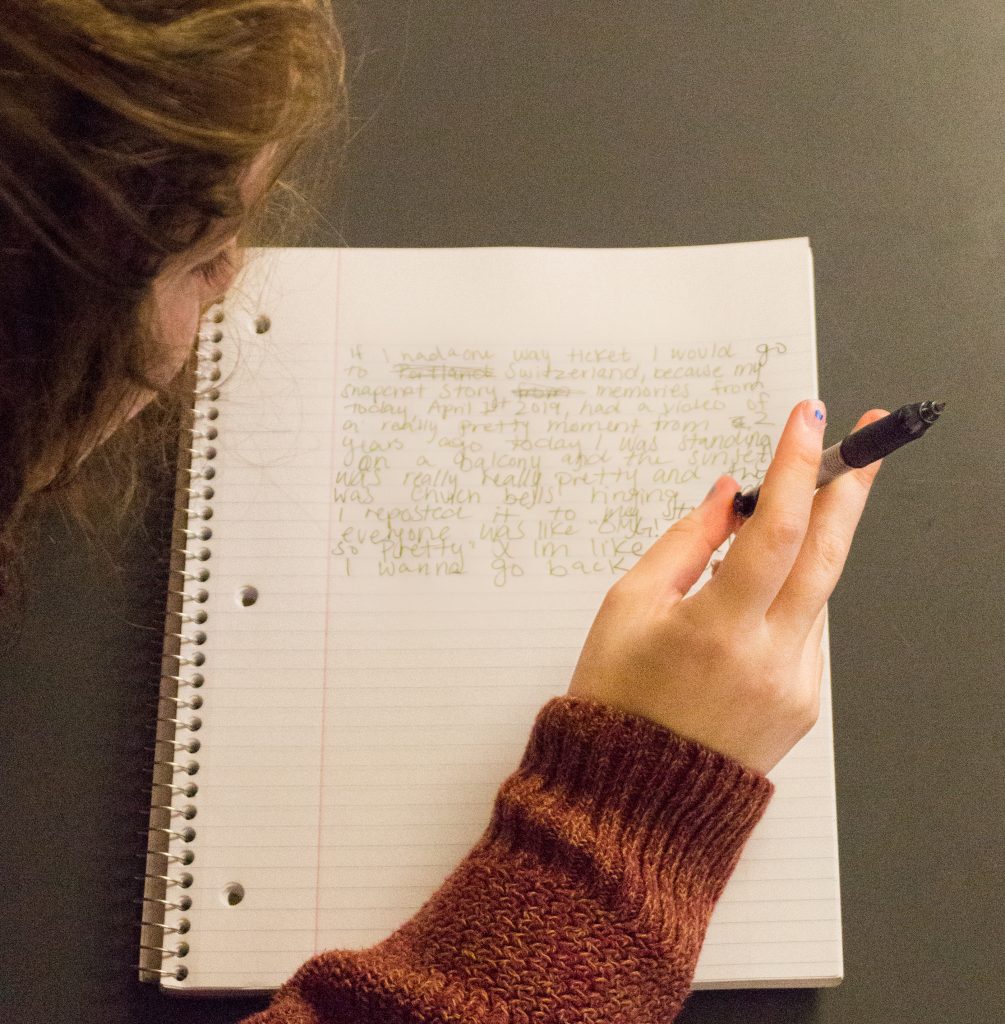
Sean Martinez | Freelancer
Whether you are a writing major or enjoy writing during your free time, the Writer’s Crucible is the ideal group to join. Writer’s Crucible is a new, small on-campus group of writers formed by junior English major Natalie Dean during Winter Term, in the hopes of improving their writing skills together.
According to Dean, Writer’s Crucible focuses on two main aspects: providing feedback and embracing writing. Western’s campus provides many opportunities for students to improve upon their writing through the Writing Center or getting published in the Northwest Passage, the university’s exclusive literary magazine, and the Writer’s Crucible is another opportunity that students can now take advantage of.
Writer’s Crucible dives deep into the writing process. This includes sharing, critiquing and most importantly, offering a safe place to share with similarly-focused minds. It can be intimidating to share intimate and personal ideas, but since the group is fairly new, it means it is not a large group.
“We sit in a circle, everyone has a physical copy of their work, we read it out loud, and then we critique,” Dean explained. The advantage to having a small group means people can be open and honest with each other.
People can bring in works from any genre. The writing does not have to be school-related; writers can bring in anything, no matter what state it is in. The group can help the writer with brainstorming, rough drafts or final drafts. The point of the critique process is not to talk badly about someone’s work — it is about helping the individual become a better writer. And talking about the writing may help the writer realize what direction they want to take it in.
One of the main goals Dean expects from the Writer’s Crucible is to boost writers’ confidence. “I want people to be able to take their own work seriously and learn how to stand behind it and present it for what it is,” Dean said about her hopes for the group.
Writer’s Crucible will meet every Thursday during Spring Term 2019 from 4-5 p.m. in one of the Hamersly Library study rooms, which may change from week to week. It is a great way for students to surround themselves with other passionate writers so they can grow and improve together. Anyone interested in attending this group and would like to know where they are meeting can contact Dean at ndean17@wou.edu.
[fruitful_alert type=”alert-info”]Disclaimer: Natalie Dean is a Student Media Board member[/fruitful_alert]
Contact the author at smartinez17@wou.edu
Photo courtesy of Ashlynn Norton



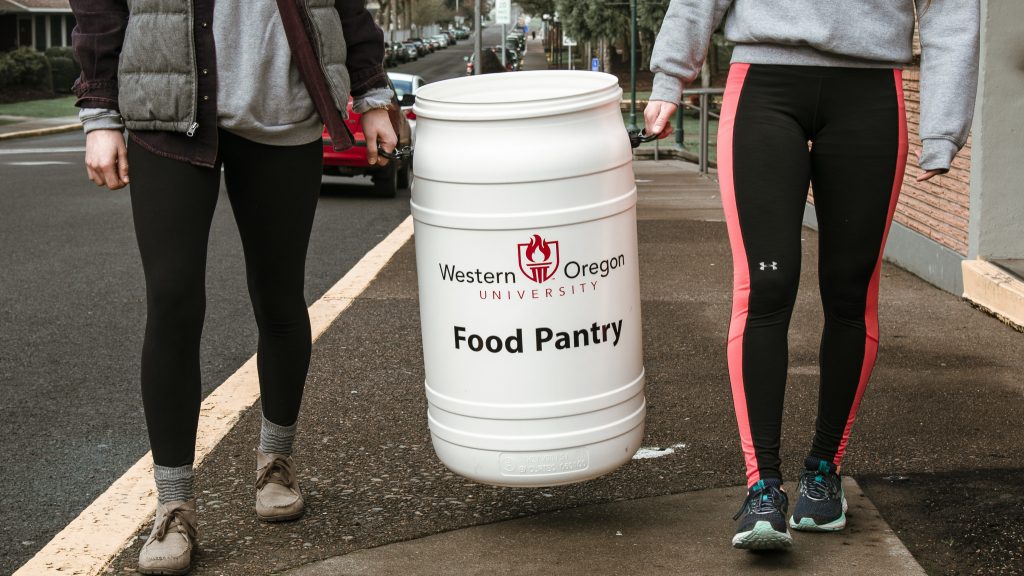

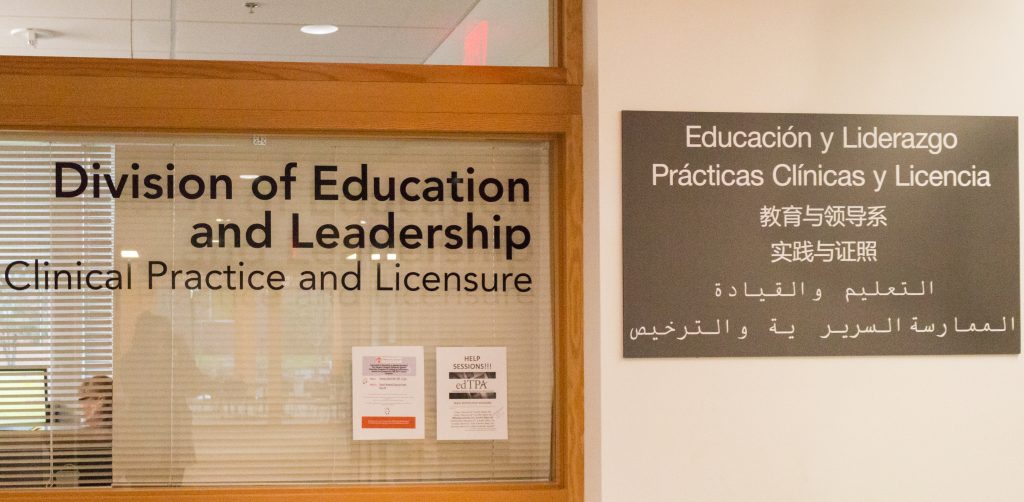
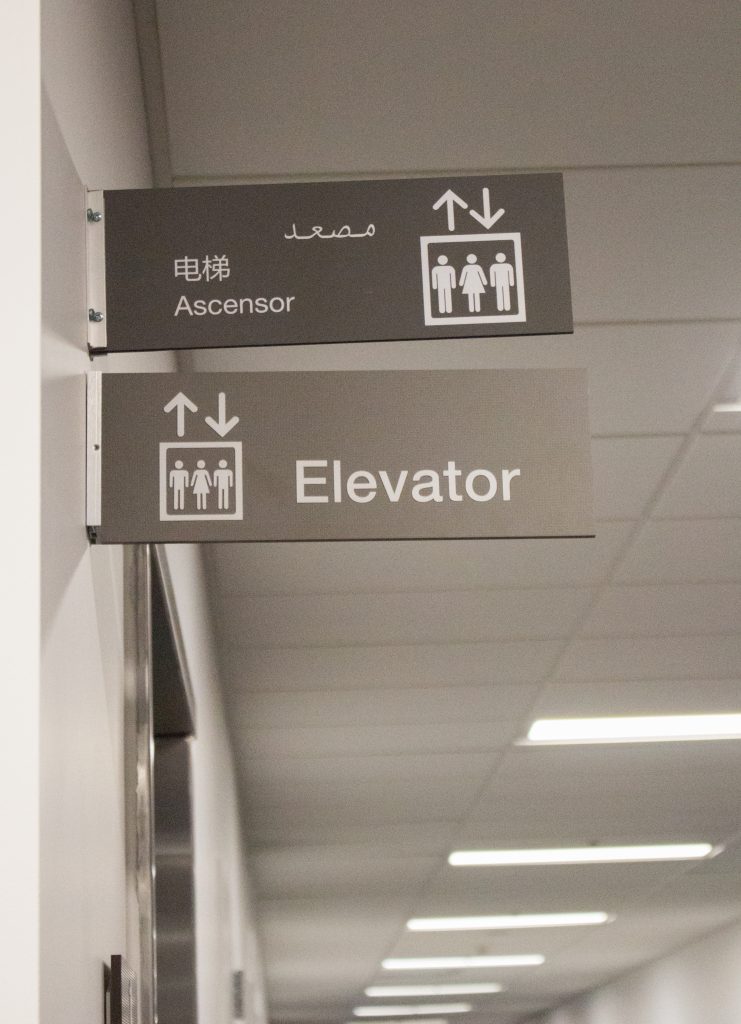 “It was really fortuitous that I had this class at the same time,” said Troyer. “I think that us inviting Mark to class and having (a) discussion motivated him to be a little more proactive about getting it done.”
“It was really fortuitous that I had this class at the same time,” said Troyer. “I think that us inviting Mark to class and having (a) discussion motivated him to be a little more proactive about getting it done.”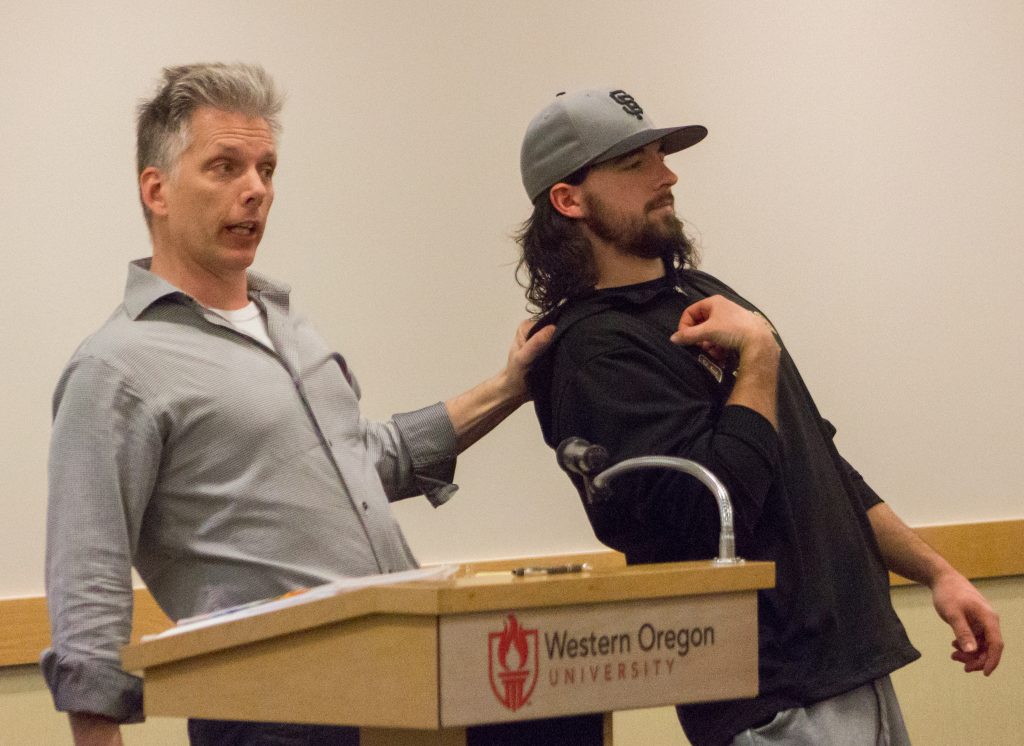
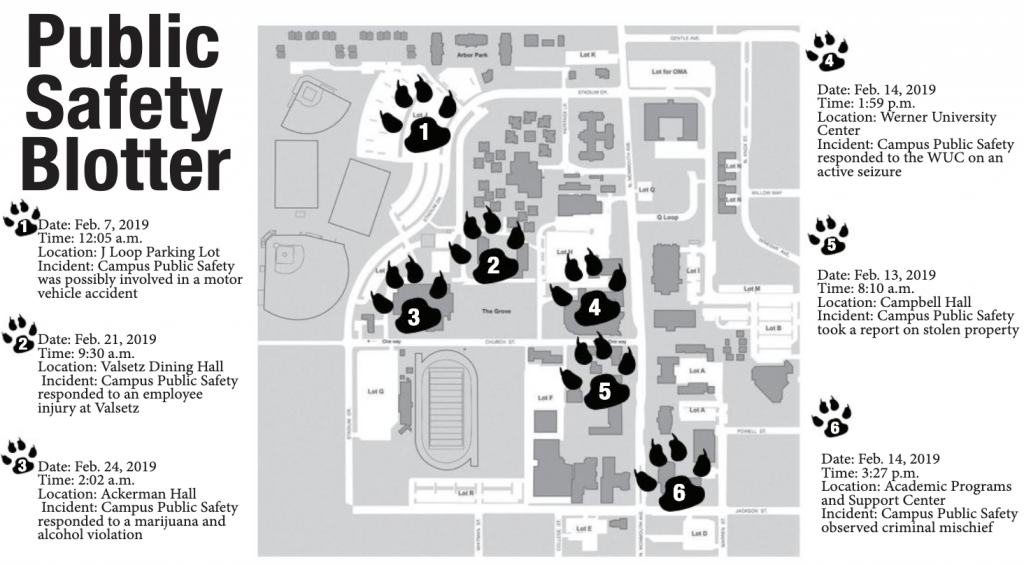
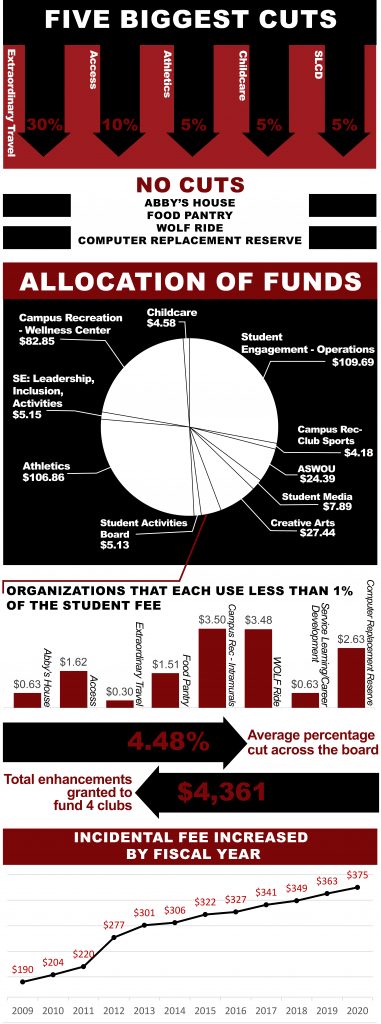
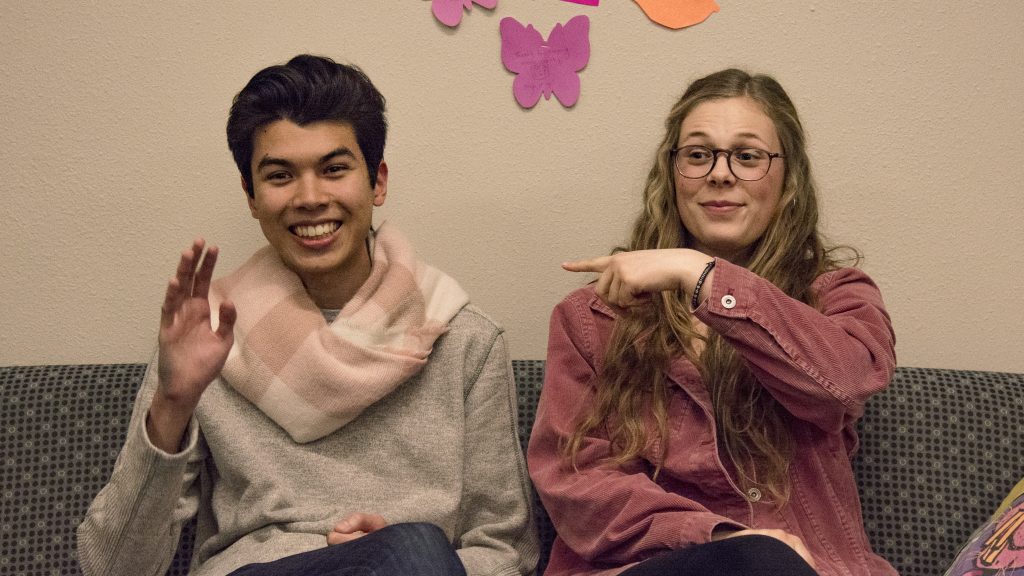
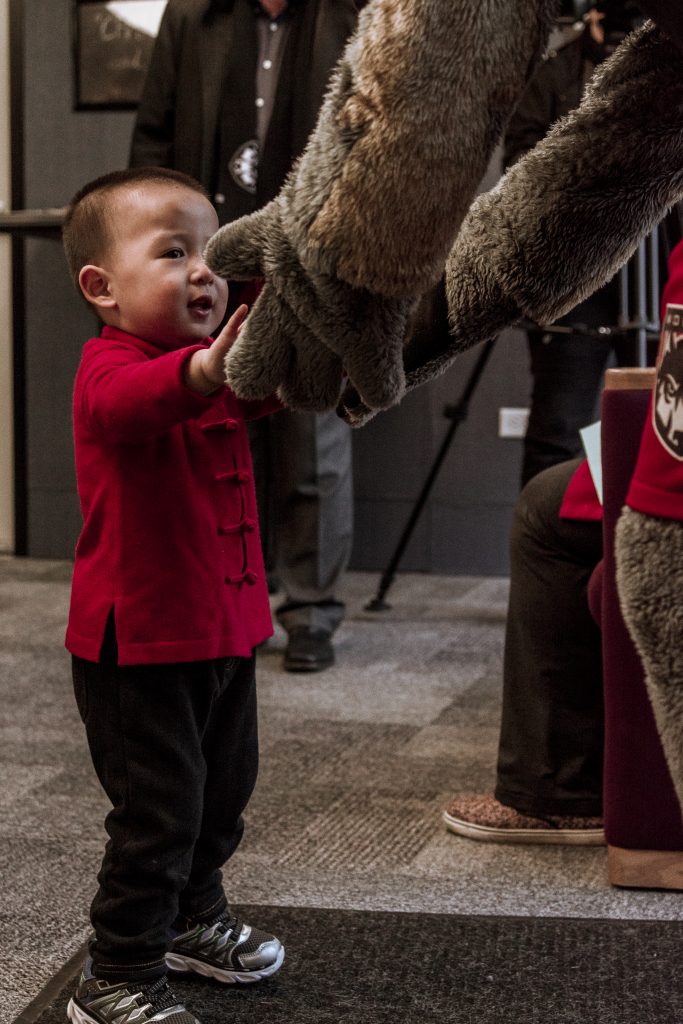
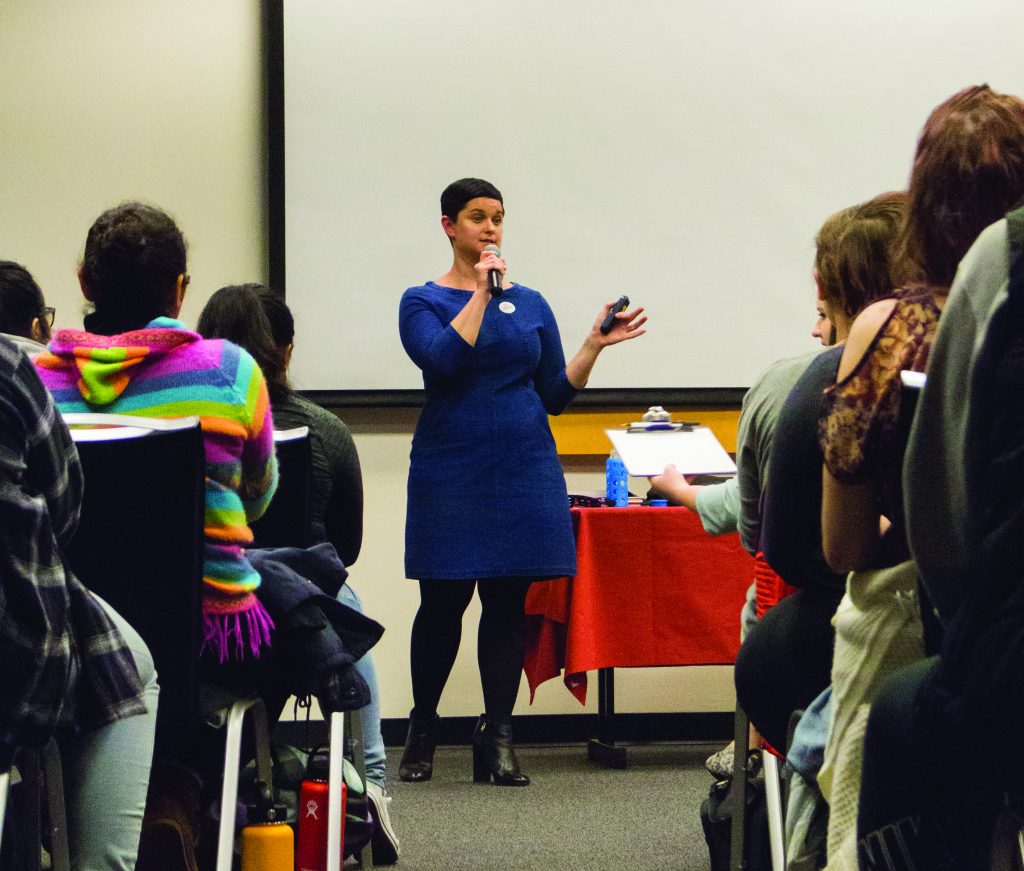

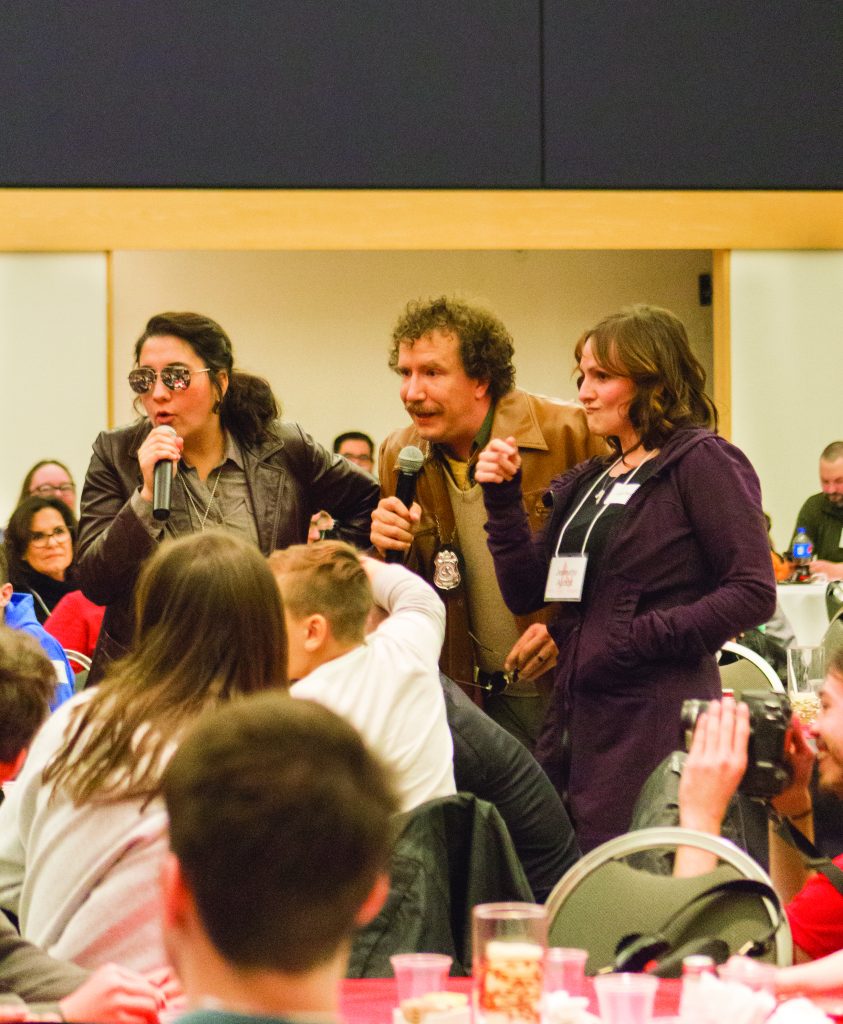
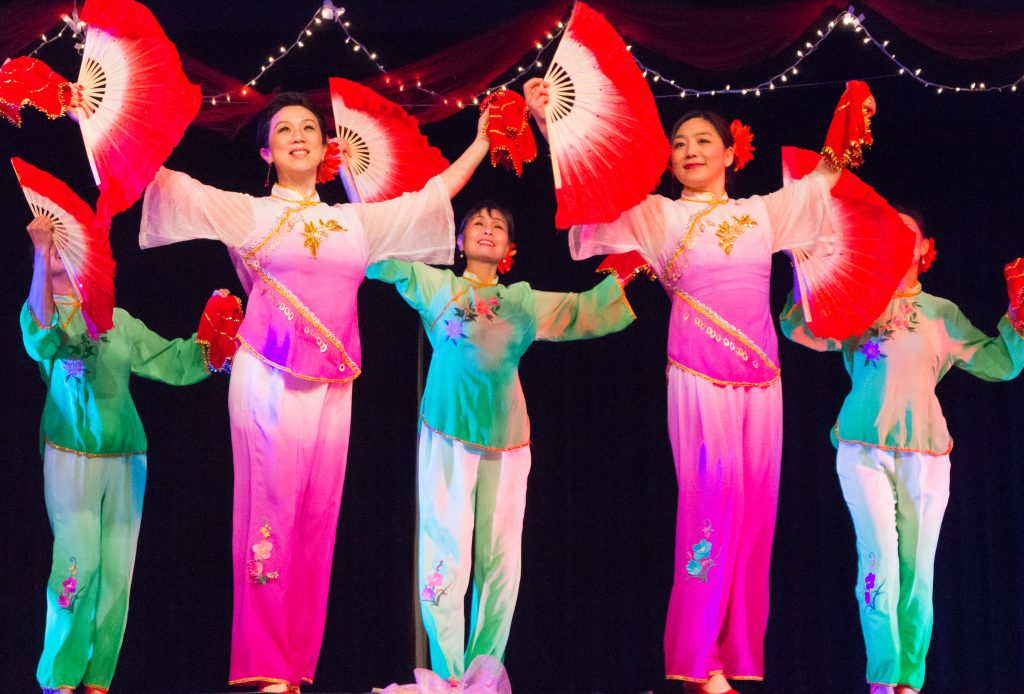
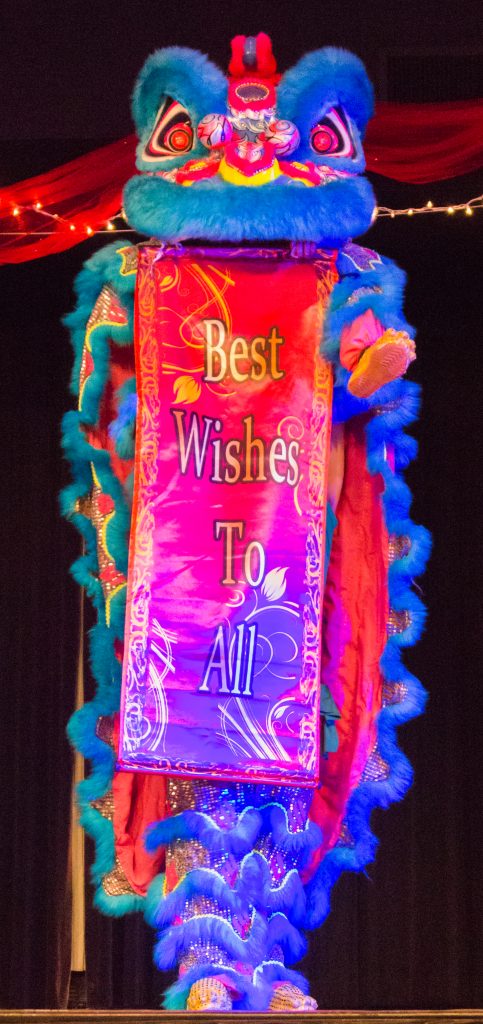 With the audience engaged, the emcees then took the stage and introduced themselves as Jenny Yang, Ankit Shrestha, Jingxiong Soh and Qiong Luo.
With the audience engaged, the emcees then took the stage and introduced themselves as Jenny Yang, Ankit Shrestha, Jingxiong Soh and Qiong Luo. 
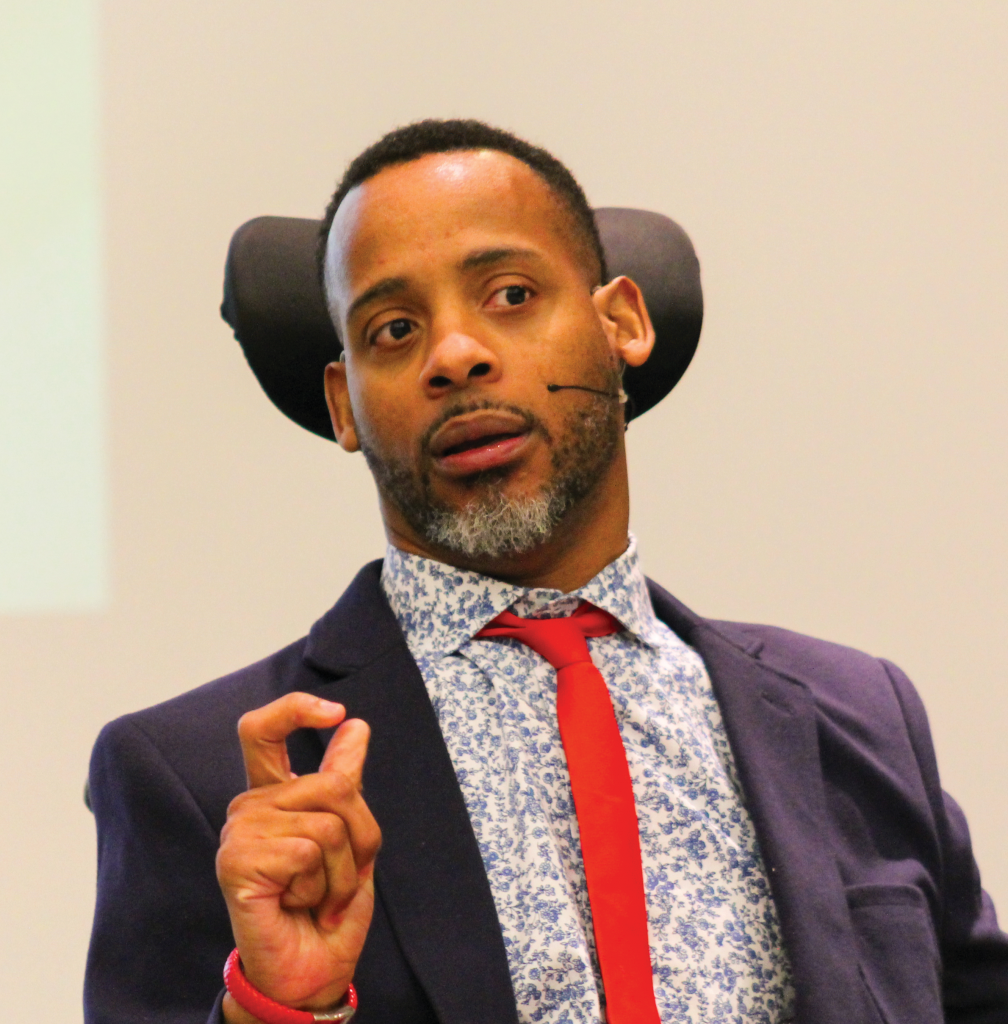
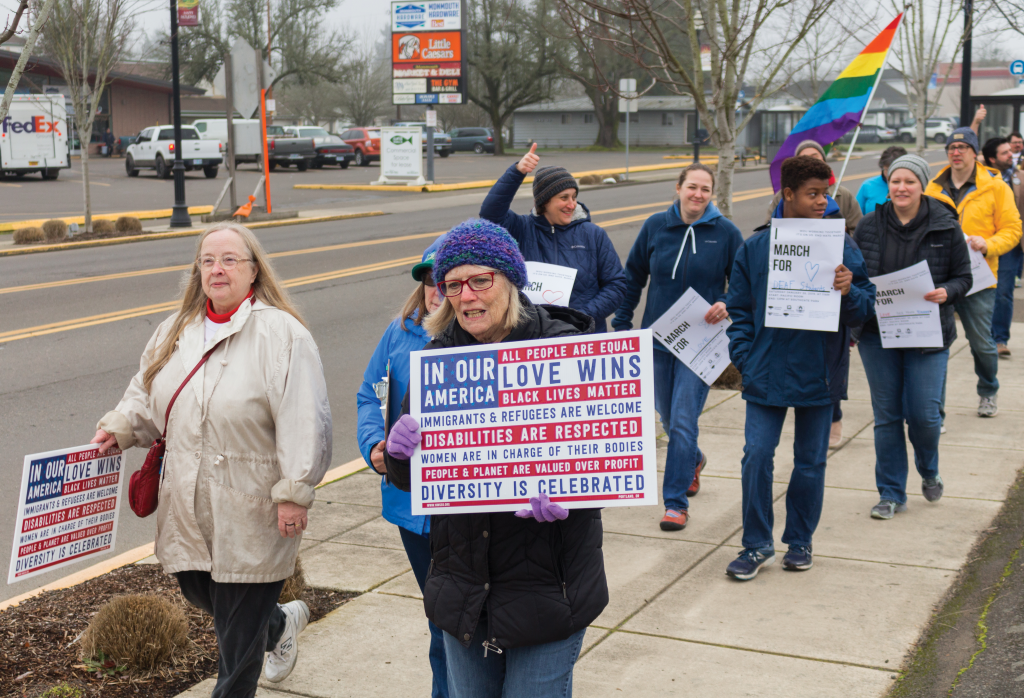
 “The graffiti placed here is not only a manifestation of a larger act, but an escalation of hate that must be conquered,” said Monmouth City Councilor Christopher Lopez. “To oppose bad things in this world, we must not only feel the good and embrace it, but act upon it. This togetherness, love, caring, openness, kindness and understanding only has power when it is paired with action.”
“The graffiti placed here is not only a manifestation of a larger act, but an escalation of hate that must be conquered,” said Monmouth City Councilor Christopher Lopez. “To oppose bad things in this world, we must not only feel the good and embrace it, but act upon it. This togetherness, love, caring, openness, kindness and understanding only has power when it is paired with action.”